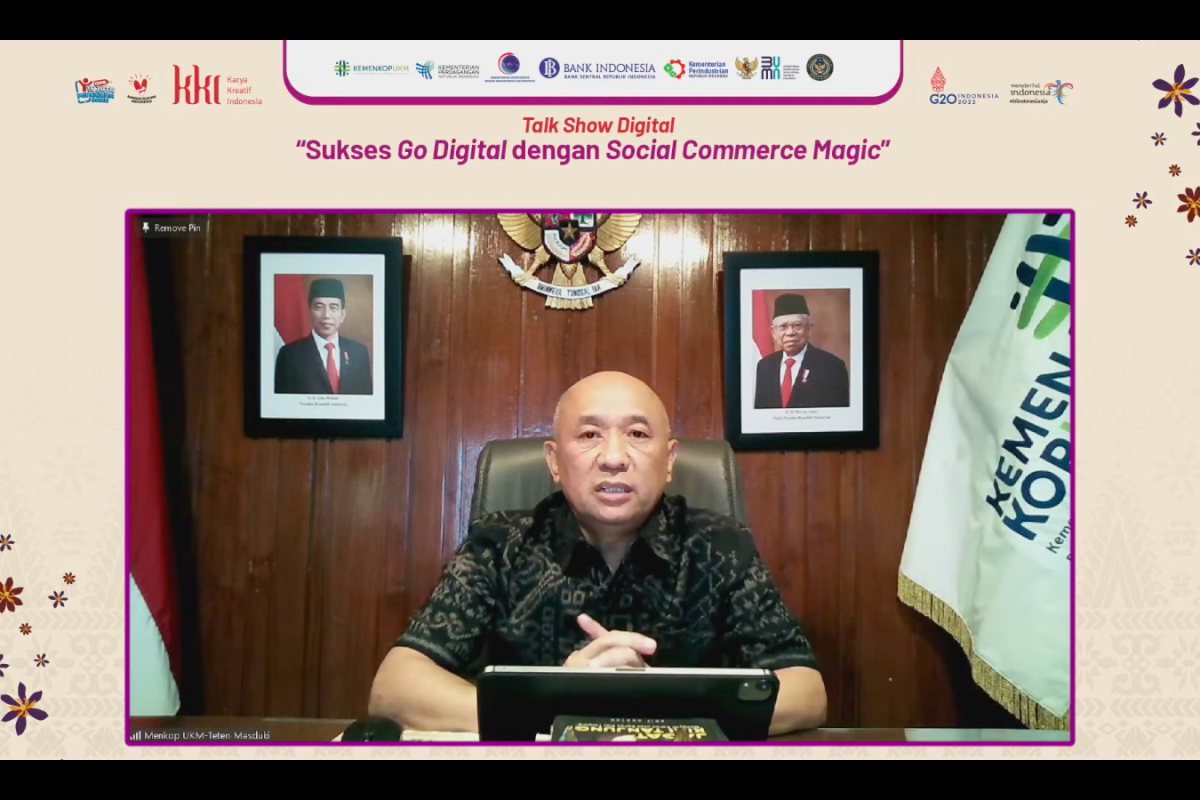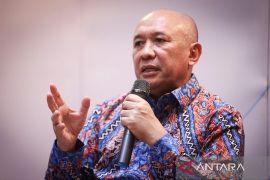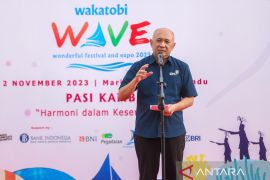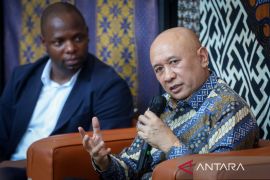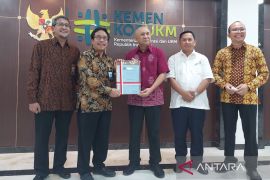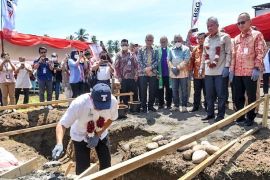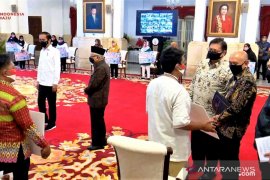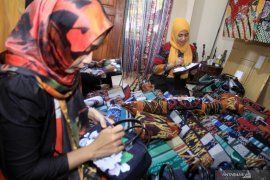He commended Bank Indonesia for hosting the 2022 Indonesian Creative Work, which served as a platform for collaboration for many stakeholders in terms of digitizing national MSMEs.
"To fellow BI colleagues, I compel them to constantly assist Indonesian MSMEs in their efforts to make MSME products or domestic products dominate the marketplace, and prepare competitive MSME products for the global market," he said in a virtual speech, accessed from here on Saturday.
According to Masduki, digital transformation would help build MSME resilience better amid digital disruptions and the COVID-19 pandemic as the shift to the post-pandemic world begins. Thus, it is vital for MSMEs to prepare for digital transformation.
According to research conducted by World Bank, 80 percent of MSMEs connected to the digital ecosystem had better resilience in the midst of the coronavirus pandemic.
"I noted two things. First, this pandemic has accelerated the digital transformation of MSMEs globally, including in Indonesia. Second, after the pandemic, the need for MSMEs to optimize the digital ecosystem will be unavoidable," he added.
Related news: Gov't asked to facilitate digital transformation of women-owned MSMEs
As of April 2022, around 19 million MSMEs were said to have delved into the digital ecosystem. This figure added to the 11 million MSMEs or 29.5 percent of the total MSME population, which had joined cyberspace since the beginning of the pandemic. The figure is closer to the target of connecting 30 million MSMEs to the digital ecosystem by 2024.
It has been projected that by 2030, the potential of Indonesia's digital economy will reach Rp4,531 trillion, making it the largest in Southeast Asia.
This shows the increasing importance of preparation for mentoring and development strategies through digital technology for MSMEs.
"The digital transformation of MSMEs is a holistic endeavor. Not only in the marketing aspect, but also in building an ecosystem, which includes business processes from upstream to downstream," he pointed out.
On the same occasion, senior deputy governor of Bank Indonesia, Destry Damayanti, said that one of the challenges to encouraging the digitalization of MSMEs is the low rate of digital literacy among the sector’s participants.
MSME actors must possess an adequate mindset and ability to adopt technology, she added.
Another challenge is the capacity and ownership of digital devices, including limited supporting infrastructure, such as uneven Internet coverage and high logistics costs.
The last problem is the issue of intellectual property protection for MSME actors. She said her side is committed to increasing the capacity and capability of MSMEs, including understanding their cultural and intellectual property so that various products from the sector can be patented.
"If we do not have intellectual property or we don't patent it, this will allow for the creation of imitation products, which will be detrimental to those who are the original founders of the products," she remarked.
Related news: Digital transformation becomes indispensable for MSMEs to compete
Translator: M Baqir I A, Mecca Yumna
Editor: Suharto
Copyright © ANTARA 2022
